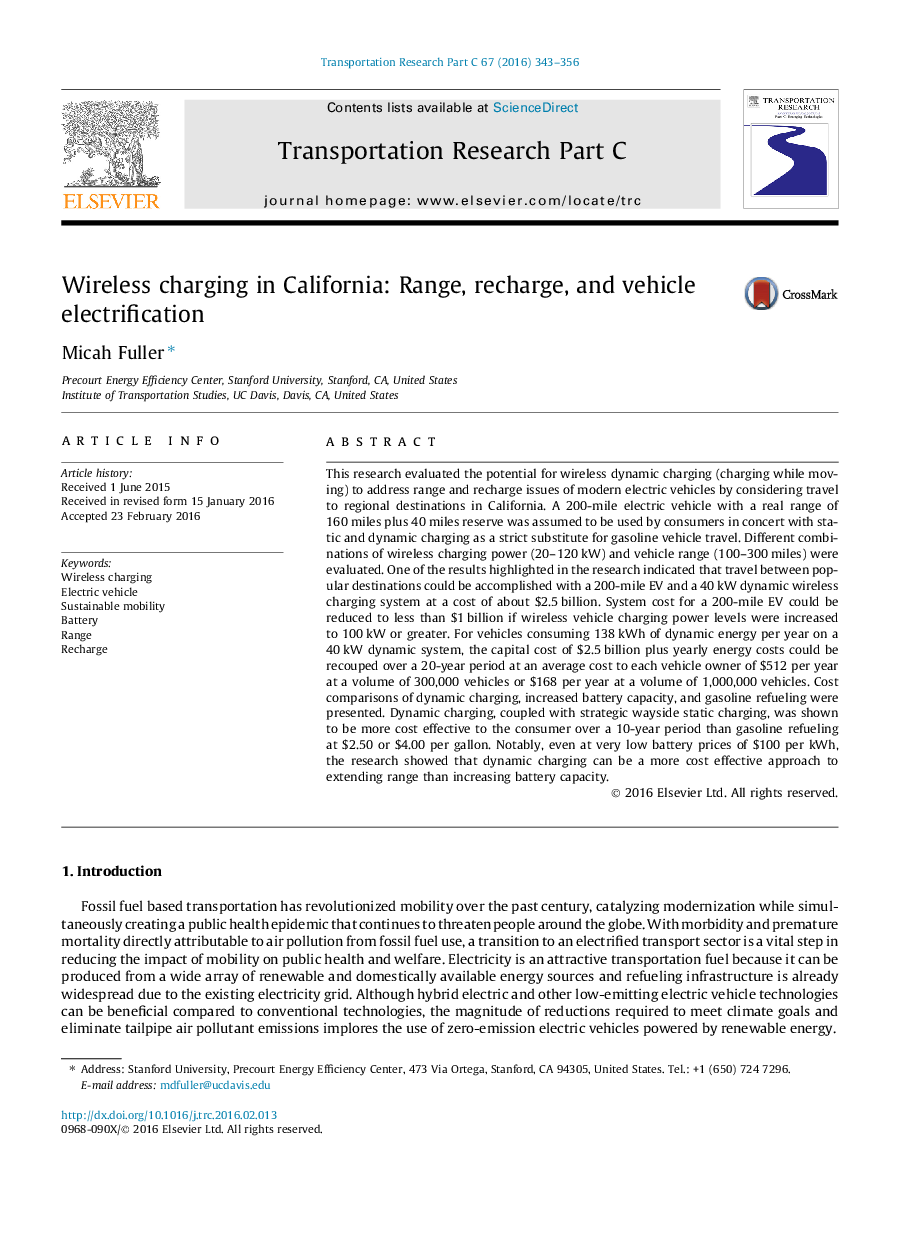| Article ID | Journal | Published Year | Pages | File Type |
|---|---|---|---|---|
| 6936445 | Transportation Research Part C: Emerging Technologies | 2016 | 14 Pages |
Abstract
This research evaluated the potential for wireless dynamic charging (charging while moving) to address range and recharge issues of modern electric vehicles by considering travel to regional destinations in California. A 200-mile electric vehicle with a real range of 160Â miles plus 40Â miles reserve was assumed to be used by consumers in concert with static and dynamic charging as a strict substitute for gasoline vehicle travel. Different combinations of wireless charging power (20-120Â kW) and vehicle range (100-300Â miles) were evaluated. One of the results highlighted in the research indicated that travel between popular destinations could be accomplished with a 200-mile EV and a 40Â kW dynamic wireless charging system at a cost of about $2.5Â billion. System cost for a 200-mile EV could be reduced to less than $1Â billion if wireless vehicle charging power levels were increased to 100Â kW or greater. For vehicles consuming 138Â kWh of dynamic energy per year on a 40Â kW dynamic system, the capital cost of $2.5Â billion plus yearly energy costs could be recouped over a 20-year period at an average cost to each vehicle owner of $512 per year at a volume of 300,000 vehicles or $168 per year at a volume of 1,000,000 vehicles. Cost comparisons of dynamic charging, increased battery capacity, and gasoline refueling were presented. Dynamic charging, coupled with strategic wayside static charging, was shown to be more cost effective to the consumer over a 10-year period than gasoline refueling at $2.50 or $4.00 per gallon. Notably, even at very low battery prices of $100 per kWh, the research showed that dynamic charging can be a more cost effective approach to extending range than increasing battery capacity.
Related Topics
Physical Sciences and Engineering
Computer Science
Computer Science Applications
Authors
Micah Fuller,
